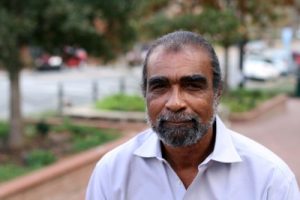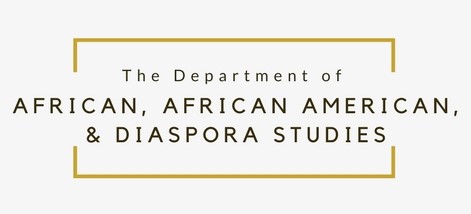 Students, faculty, and staff in the Department of African, African American, and Diaspora (AAAD) Studies mourn the loss of Dr. Perry Hall, who passed away on April 19, 2020. Dr. Hall served on the UNC-Chapel Hill faculty for 28 years. Prior to coming to UNC, Dr. Hall was on the faculty of Wayne State University for 13 years. He was a scholar of the field of African American Studies, African-American cultural production, and hip hop. Dr. Hall began his career in African American Studies as part of the black student movement of the 1960s and 1970s, which led to the establishment of Black Studies programs across the country. His courses were popular with students and he taught the first course on hip hop at UNC, which drew students from across the College of Arts and Sciences for many years. Dr. Hall was an approachable professor who made a deep and lasting connection with his students. He was also a central figure in the field of African American Studies and the National Council of Black Studies (NCBS). Dr. Hall served for many years as an executive board member of NCBS. He also chaired the organization’s first national curriculum committee, which produced a study that became known as the “Hall Report.” Dr. Hall utilized his expertise and knowledge of Black/African American Studies programs across the country to help guide the development of a new curriculum in African, African American, and Diaspora Studies at UNC in the early 2010s, as well as plans for the department’s graduate program proposal. Dr. Hall’s book, In the Vineyard: Working in African American Studies (University of Tennessee Press, 2004), is a landmark analysis of the field. Dr. Hall was a proud native of Detroit, Michigan, and a devoted music lover. Those who knew Dr. Hall will remember him for his warmth, humility, care, and concern for students and colleagues, and a deep commitment to AAAD and the broader field of African American Studies. When the current situation improves, the Department looks forward to holding a public event to honor Dr. Hall’s indelible contributions to AAAD, the College of Arts of Sciences, the broader university, and the community at large.
Students, faculty, and staff in the Department of African, African American, and Diaspora (AAAD) Studies mourn the loss of Dr. Perry Hall, who passed away on April 19, 2020. Dr. Hall served on the UNC-Chapel Hill faculty for 28 years. Prior to coming to UNC, Dr. Hall was on the faculty of Wayne State University for 13 years. He was a scholar of the field of African American Studies, African-American cultural production, and hip hop. Dr. Hall began his career in African American Studies as part of the black student movement of the 1960s and 1970s, which led to the establishment of Black Studies programs across the country. His courses were popular with students and he taught the first course on hip hop at UNC, which drew students from across the College of Arts and Sciences for many years. Dr. Hall was an approachable professor who made a deep and lasting connection with his students. He was also a central figure in the field of African American Studies and the National Council of Black Studies (NCBS). Dr. Hall served for many years as an executive board member of NCBS. He also chaired the organization’s first national curriculum committee, which produced a study that became known as the “Hall Report.” Dr. Hall utilized his expertise and knowledge of Black/African American Studies programs across the country to help guide the development of a new curriculum in African, African American, and Diaspora Studies at UNC in the early 2010s, as well as plans for the department’s graduate program proposal. Dr. Hall’s book, In the Vineyard: Working in African American Studies (University of Tennessee Press, 2004), is a landmark analysis of the field. Dr. Hall was a proud native of Detroit, Michigan, and a devoted music lover. Those who knew Dr. Hall will remember him for his warmth, humility, care, and concern for students and colleagues, and a deep commitment to AAAD and the broader field of African American Studies. When the current situation improves, the Department looks forward to holding a public event to honor Dr. Hall’s indelible contributions to AAAD, the College of Arts of Sciences, the broader university, and the community at large.

